Loading the player...
FDA Approves Diagnostic to Identify Microsatellite Instability-High Solid Tumors
The FDA approved the genomic profiling test, FoundationOne CDx as a companion diagnostic to identify patients with Microsatellite Instability-High status solid tumors who may qualify for treatment with pembrolizumab, according to a press release from the manufacturer.
In May 2017, pembrolizumab gained accelerated approval in certain patients with MSI-H solid tumors.
“FoundationOne CDx is a next-generation sequencing based in vitro diagnostic device for detection of substitutions, insertion and deletion alterations (indels), and copy number alterations (CNAs) in 324 genes and select gene rearrangements, as well as genomic signatures including microsatellite instability (MSI) and tumor mutational burden (TMB) using DNA isolated from formalin-fixed, paraffin-embedded (FFPE) tumor tissue specimens,” according to the manufacturer.
The assay can help guide immunotherapy treatment decisions and therapy development, the company said.
This is the third tumor agnostic companion diagnostic approval for FoundationOne CDx, which now has 26 companion diagnostic claims and two group claims across 27 targeted therapies, according to the release.
“Not only could this approval allow more patients to benefit from [pembrolizumab], but it also underscores an important shift toward tumor-agnostic cancer care,” Mia Levy, MD, PhD, chief medical officer at Foundation Medicine, in the release.
Reference:
https://www.foundationmedicine.com/press-releases/ecc2cc7f-8490-4838-a622-1baa0bc978a8
Images: Getty Images, Pixabay
By MD /alert Staff
In May 2017, pembrolizumab gained accelerated approval in certain patients with MSI-H solid tumors.
“FoundationOne CDx is a next-generation sequencing based in vitro diagnostic device for detection of substitutions, insertion and deletion alterations (indels), and copy number alterations (CNAs) in 324 genes and select gene rearrangements, as well as genomic signatures including microsatellite instability (MSI) and tumor mutational burden (TMB) using DNA isolated from formalin-fixed, paraffin-embedded (FFPE) tumor tissue specimens,” according to the manufacturer.
The assay can help guide immunotherapy treatment decisions and therapy development, the company said.
This is the third tumor agnostic companion diagnostic approval for FoundationOne CDx, which now has 26 companion diagnostic claims and two group claims across 27 targeted therapies, according to the release.
“Not only could this approval allow more patients to benefit from [pembrolizumab], but it also underscores an important shift toward tumor-agnostic cancer care,” Mia Levy, MD, PhD, chief medical officer at Foundation Medicine, in the release.
Reference:
https://www.foundationmedicine.com/press-releases/ecc2cc7f-8490-4838-a622-1baa0bc978a8
Images: Getty Images, Pixabay
By MD /alert Staff
.jpg)
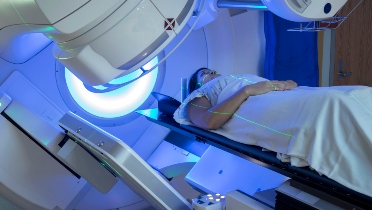


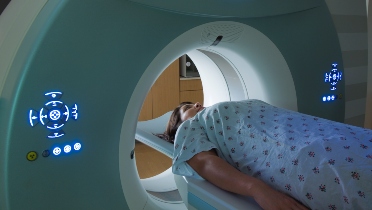













.jpg)
.jpg)

.jpg)


.jpg)
.jpg)
_.jpg)
.jpg)
.jpg)
.jpg)
.jpg)

.jpg)
.jpg)
.jpg)
.jpg)

.jpg)

.jpg)

.jpg)
.jpg)
.jpg)
.jpg)
.jpg)
.jpg)
.jpg)
.jpg)
.jpg)

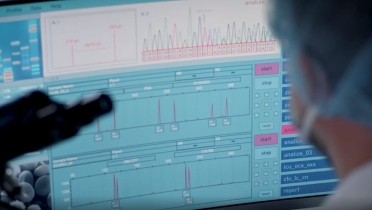

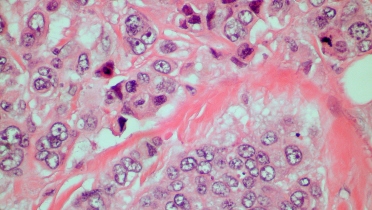
.jpg)
.jpg)
.jpg)
.jpg)

.jpg)
.jpg)

.jpg)
.jpg)
.jpg)

.jpg)
.jpg)
.jpg)
.jpg)

.jpg)
.jpg)
.jpg)

.jpg)

.jpg)
.jpg)

.jpg)
.jpg)
.jpg)
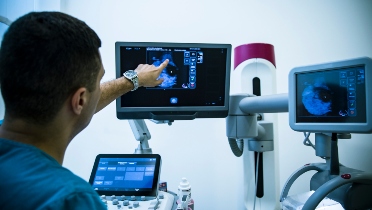

.jpg)
.jpg)
.jpg)
.jpg)
.jpg)
.jpg)
.jpg)

.jpg)

.jpg)
.jpg)
.jpg)

.jpg)

.jpg)
.jpg)
.jpg)
.jpg)

.jpg)
.jpg)
.jpg)
.jpg)


.jpg)

.jpg)
.jpg)
.jpg)
.jpg)

.jpg)
.jpg)
.jpg)
.jpg)
.jpg)

.jpg)
.jpg)
.jpg)
 Featured Breast Cancer Videos
Featured Breast Cancer Videos.jpg)